
Picture a tree transformed into a secret haven. Imagine a comfy cushion, twinkling lights, and hanging flowerpots. Create space with suspended baskets and a small chair. Sunlight filters through the leaves, and birds chirp overhead. A swing gently moves, and a tree fort stands proudly. Every corner holds a new adventure. What sparks joy in you?
A tree can be your personal sanctuary. String up fairy lights for magical evenings. Place a swing or bench in its cool shade. Add planters to cultivate flowers and herbs. Decorate with statues or wind chimes. Transform it into a tranquil spot for reading or dreaming. Ready to craft your own wonderland?
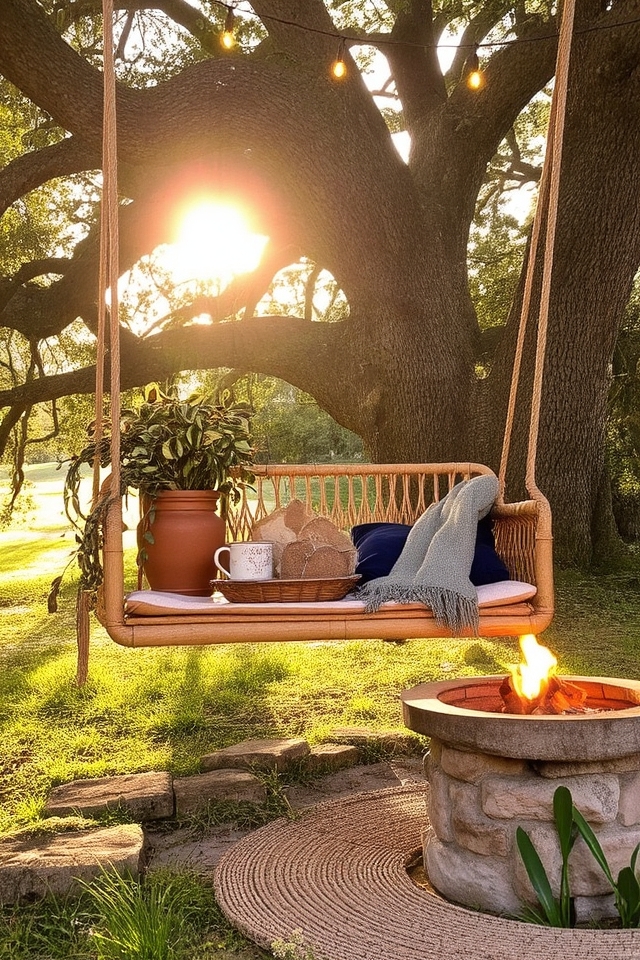
Design a comfortable seating area under a tree with a swing, woven chairs, or a bench. Include soft cushions, a small table, and gentle lighting like string lights or lanterns. Surround it with potted plants, a rug, and a fire pit for warmth. Use organic materials to harmonize with the garden, providing a serene escape for relaxation or gatherings.
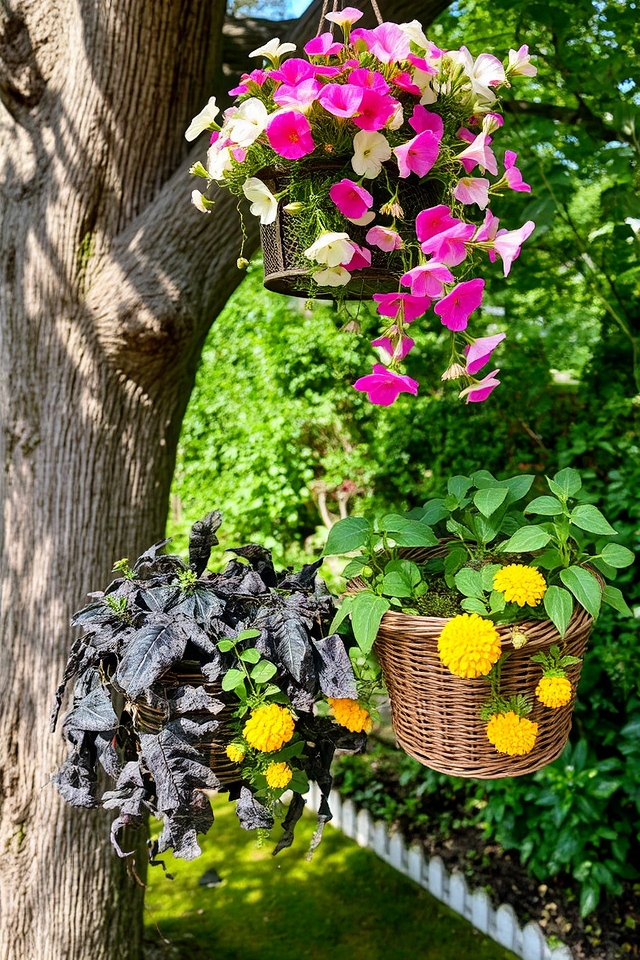
Hanging planters and baskets maximize overhead space around trees, adding visual appeal without interfering with the roots. Options like wicker, metal, or fabric blends offer both durability and style. They are perfect for herbs, cascading plants, or small flowers, enhancing beauty while simplifying care. Secure installation prevents damage to the tree’s bark. Select durable materials for long-lasting use. They are ideal for small gardens or shady spots.
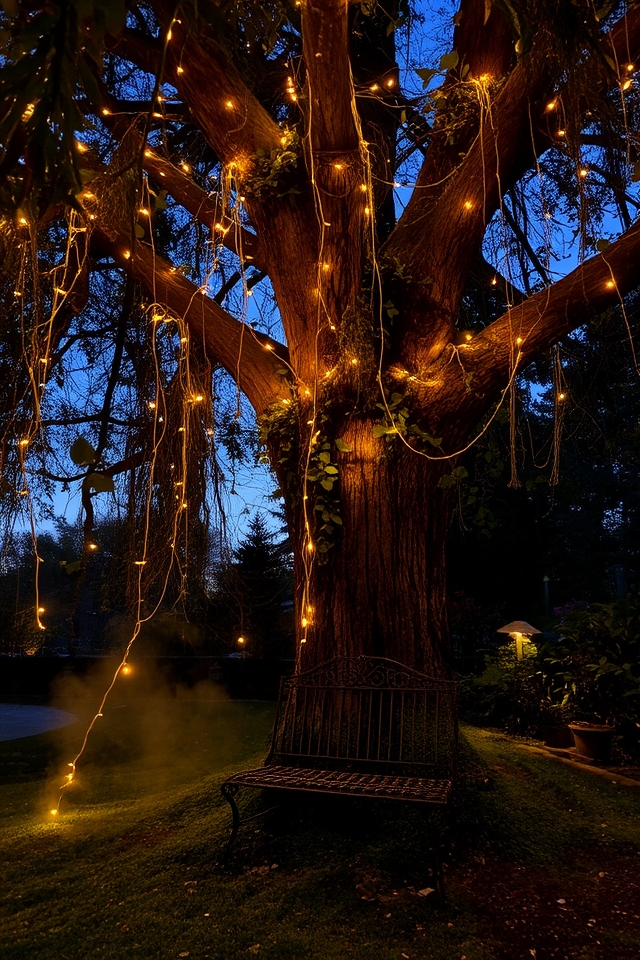
Fairy lights and string lights bring magic to garden areas around trees. Drape them along branches or wrap them around trunks for a whimsical effect. Solar-powered or LED choices offer efficient, long-lasting light. Soft, warm hues enhance the evening atmosphere, while colored lights create vibrant points of interest. Secure them with clips or ties to protect the tree’s bark. They are perfect for parties, relaxation, or highlighting seasonal themes. They are easy to install and customize for any garden style.
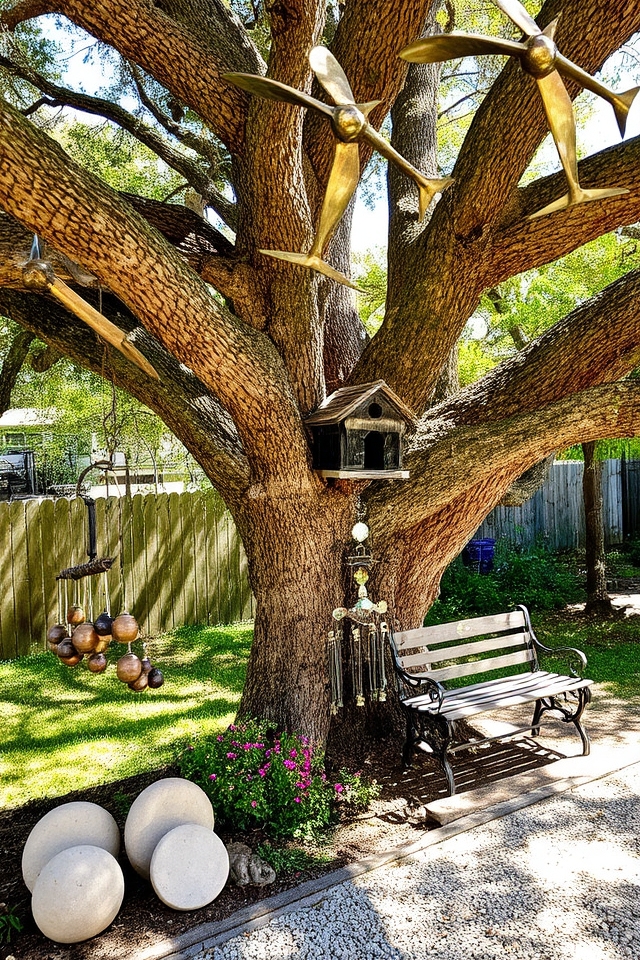
Creative garden sculptures enhance tree-centered spaces with artistic touches. Use metals, wood, or stone to create unique shapes, birdhouses, or wind chimes. Place pieces to complement the tree’s form, adding texture and movement. Use upcycled materials for an eco-friendly touch. Sculptures encourage interaction, blending nature and art while defining garden areas.
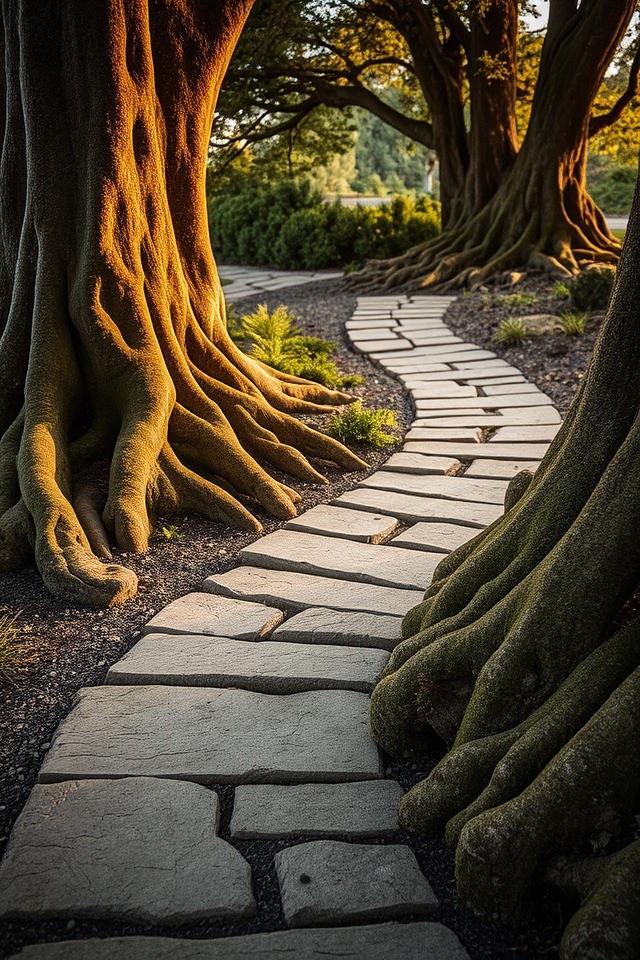
Winding pathways around tree roots use gravel, stone, or composite materials to navigate the natural landscape. Sweeping designs prevent root damage while adding visual interest. Edging or low plants define the paths, blending with the foliage. Gradual slopes improve accessibility, while lighting highlights textures. This method respects the tree’s structure, providing a practical, beautiful route that enhances the landscape.
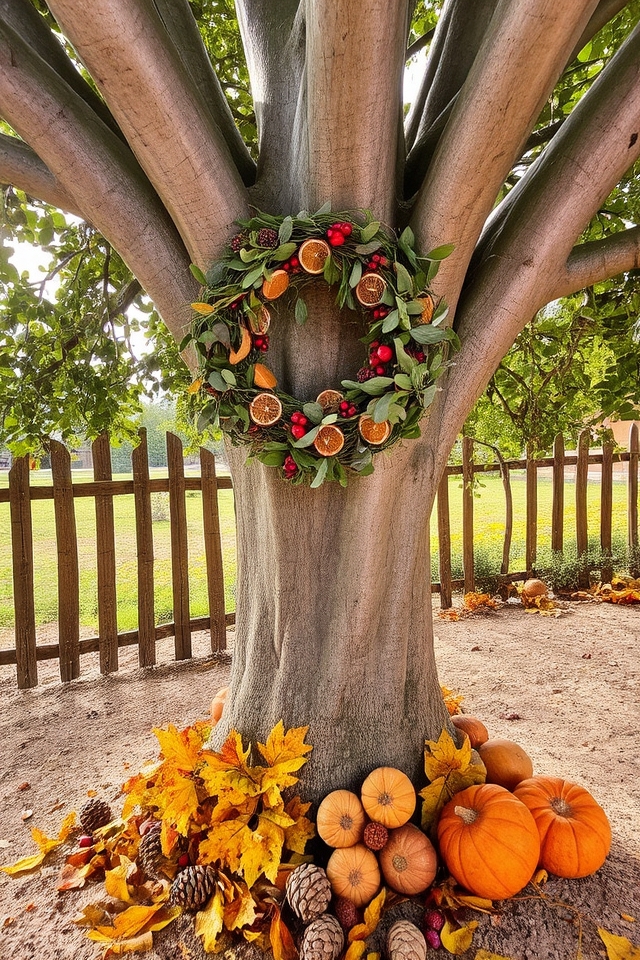
Seasonal wreaths and decor enhance a tree’s appearance throughout the year. Spring showcases blooming flowers, summer features lush greenery, autumn includes leaves and gourds, and winter highlights evergreens and lights. These accents add color, texture, and seasonal charm, turning the tree into a vibrant garden centerpiece. Select durable materials for weather resistance and visual harmony.
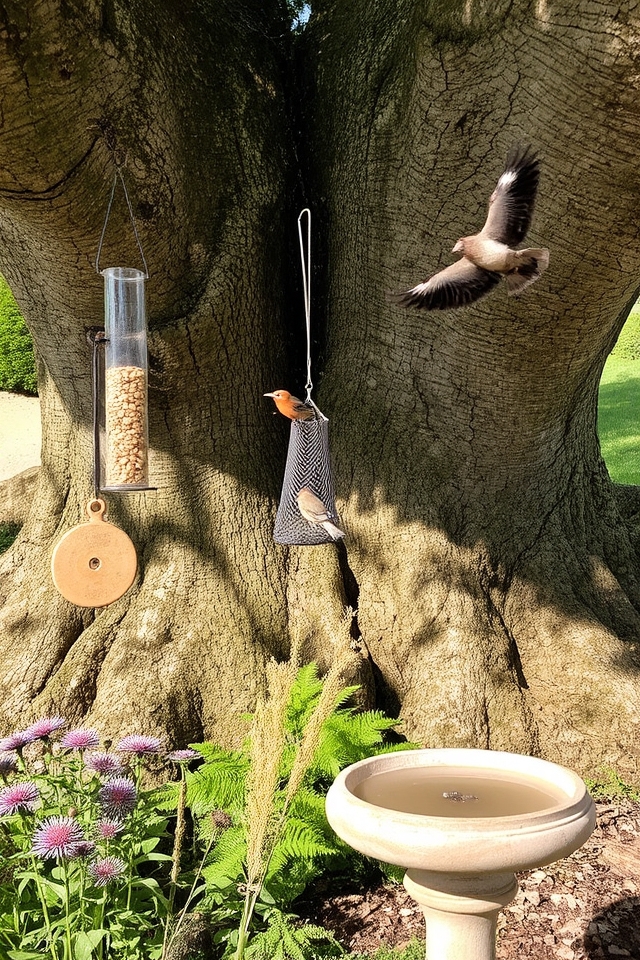
Bird-friendly feeding stations provide safe, accessible food for local birds. Use tube feeders for seeds, suet feeders for insect-eating birds, and platform feeders for ground feeders. Place stations away from predators, near native plants for shelter, and include fresh water. Avoid toxic plants and pesticides. Clean regularly to prevent disease. Attract diverse species while supporting the ecosystem around trees.
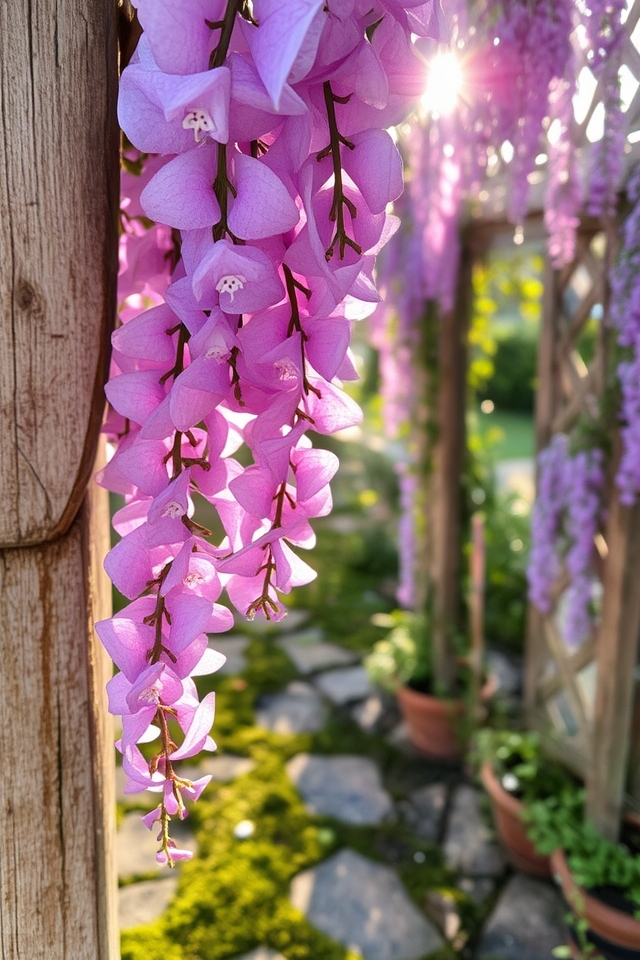
Vertical garden trellises use vertical space around trees, improving beauty and utility. They support vining plants like ivy, roses, or clematis, adding layers of greenery and color. Installed on tree trunks or nearby structures, trellises maximize small areas, improve air flow, and create dynamic visual interest. Materials like wood, metal, or wire mesh offer durability. This method expands garden space while complementing the tree’s natural shape.
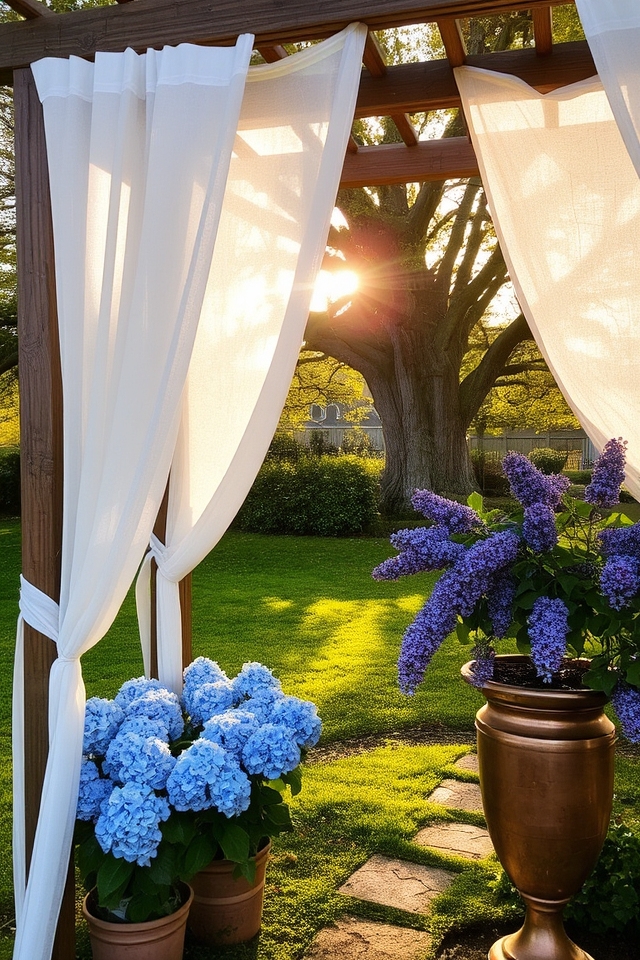
Shade-shielding canopies offer targeted protection from strong sunlight, protecting sensitive plants under trees. Fabric or latticework filters light, reducing heat while maintaining air circulation. They create comfortable, shaded areas for outdoor activities, improving garden usability. Placed carefully, canopies complement tree canopies, adding layers to the landscape design. Materials like weather-resistant fabrics or wooden frames blend naturally, balancing function and aesthetics. This method creates microclimates, supporting biodiversity and extending growing seasons.
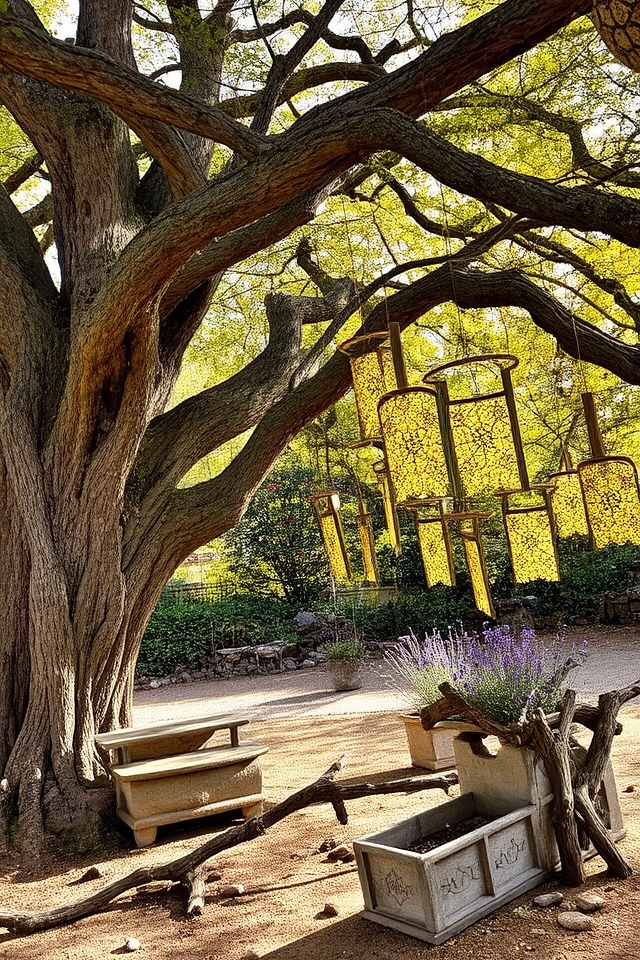
Garden art installations around a tree integrate sculptures, wind chimes, or mosaics to enhance its natural beauty. Use aged metals, stone, or recycled materials to harmonize with the tree’s texture. Hanging pieces catch the light, while ground-level works frame roots or pathways. Artistic elements evoke whimsy or elegance, balancing creativity with the tree’s organic form. Ensure spacing allows for growth and seasonal visual interest.
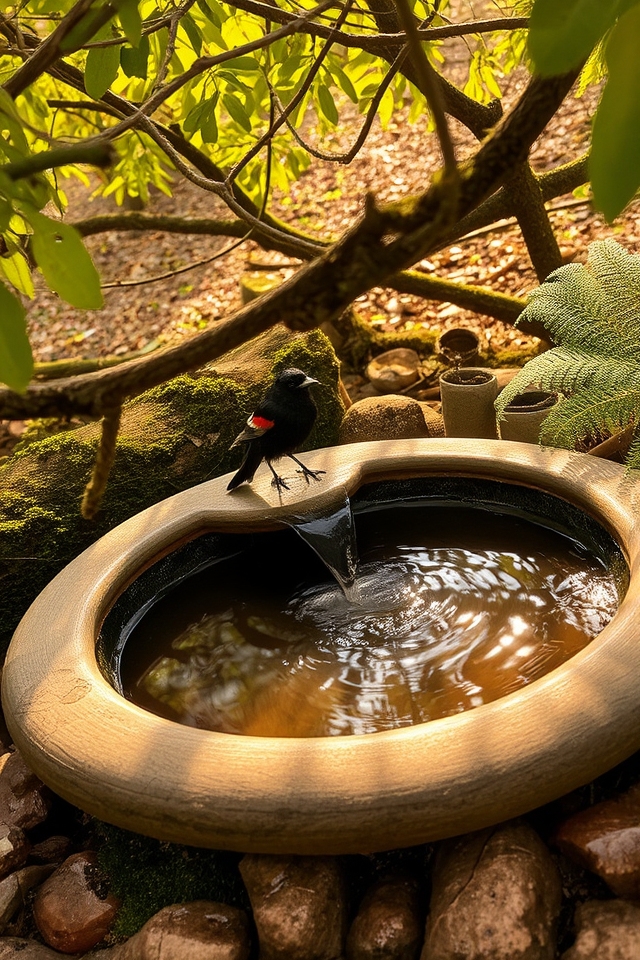
Incorporate small water features like bird baths, tabletop fountains, or rill gardens near trees. Use earthy materials—stone, wood, or metal—to blend with the surroundings. Position them to reflect tree shadows or create focal points. Water features enhance beauty, attract wildlife, and add soothing sounds. Ensure proper drainage and maintenance to prevent root damage. Prioritize compact designs that complement tree canopies without overcrowding.
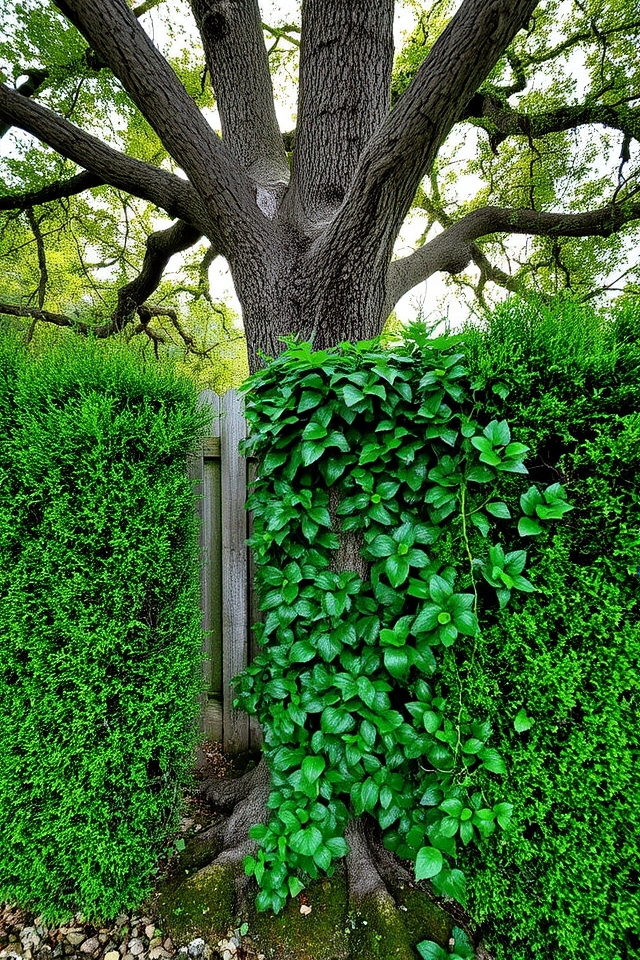
Privacy screening plants near trees include thick shrubs like holly, boxwood, or laurel, which offer year-round coverage. Choose upright varieties to minimize root competition. Vining plants like ivy can add vertical screening. Ensure spacing allows room for tree growth. Evergreens provide consistent privacy, while deciduous options offer seasonal coverage. Select low-maintenance, non-invasive species for effective, sustainable screening.
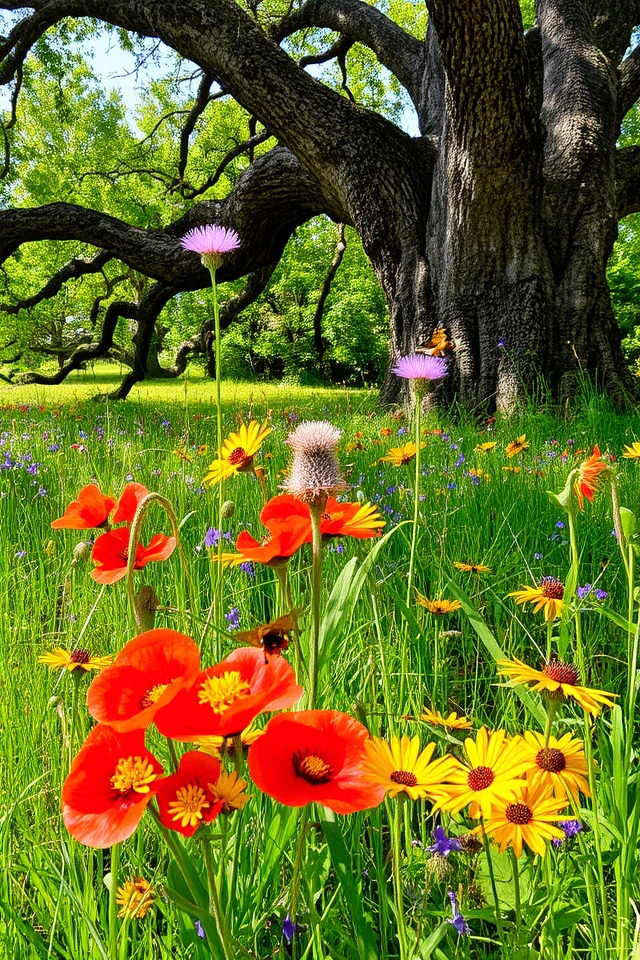
Wildflower meadows around trees feature indigenous blooms that attract pollinators, thrive with little care, and add vibrant color. Planting species like poppies, coneflowers, and clover creates a natural, ecologically rich ground cover. This easy-care option complements tree canopies, enhancing biodiversity and visual appeal year-round.
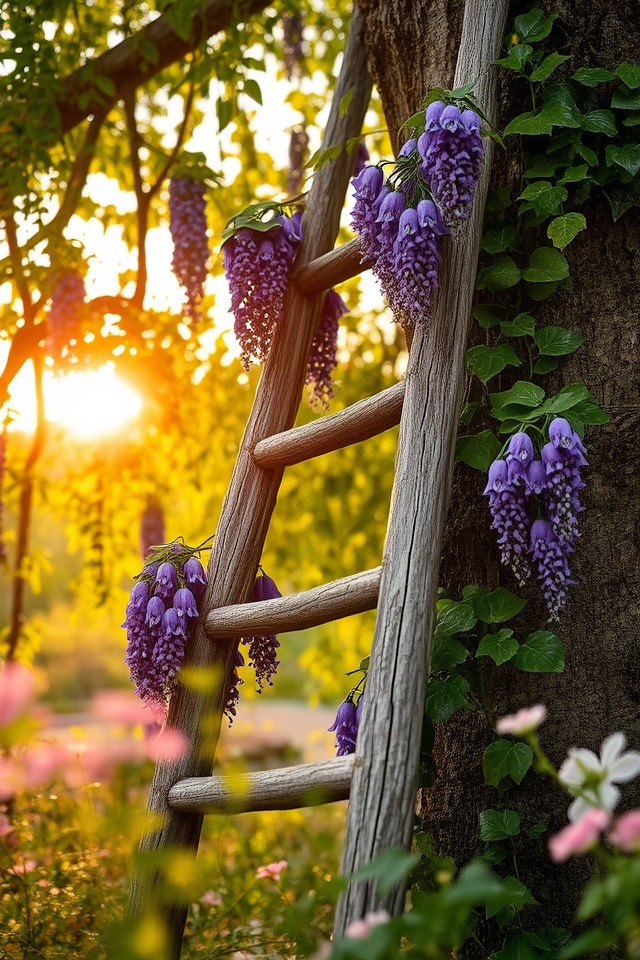
Use tree limbs as natural supports for climbing plants like ivy, wisteria, or clematis. Attach wooden or metal ladders to trunks for living walls, pairing with vining flowers or herbs. Ensure structures are durable and secure. Incorporate rustic elements for visual appeal, blending functionality with garden design. Select plants suited to the tree’s canopy light levels.
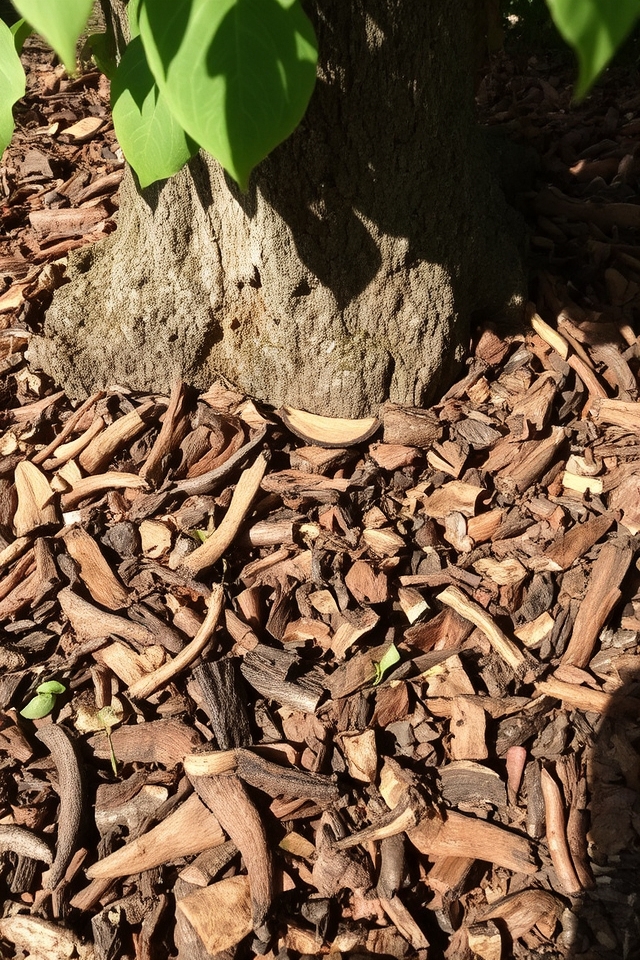
Mulch bed accents enhance tree areas by retaining moisture, controlling weeds, and improving appearance. Use natural mulches like wood chips or bark to create a clean, defined edge. Color choices—brown, black, or dyed—complement foliage and flowers. Maintain a 2–4 inch layer, keeping it a few inches from the trunk to prevent rot. This simple approach adds texture and visual interest while promoting tree health.
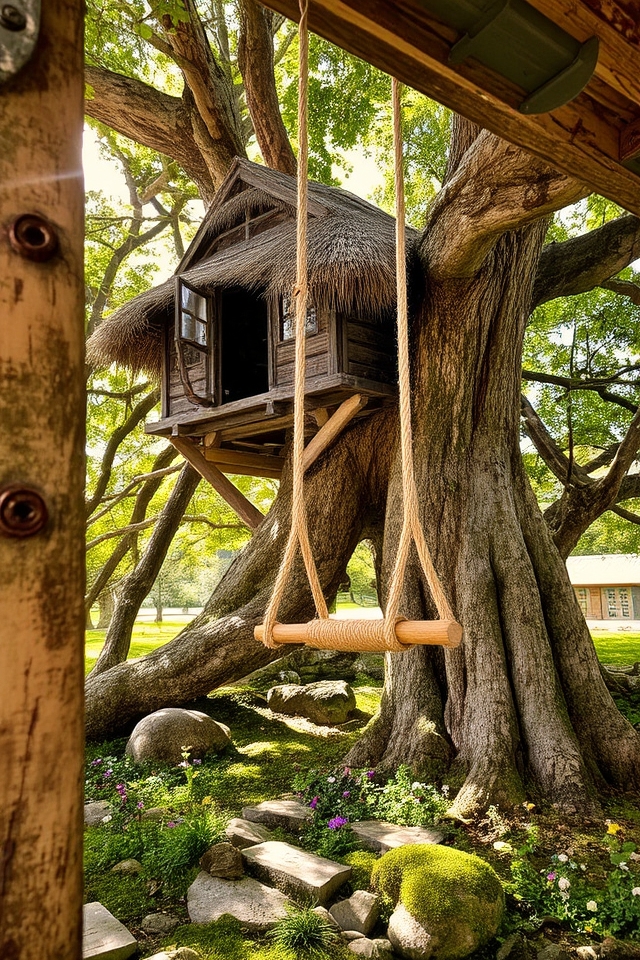
Treehouses and swings transform trees into useful, fun areas. Treehouses use branches for support, offering private retreats. Swings, hung from strong branches, provide enjoyable relaxation. Both enhance garden beauty and encourage outdoor activity, blending nature with play. Well-planned designs prioritize safety and tree health, using natural materials for harmony.
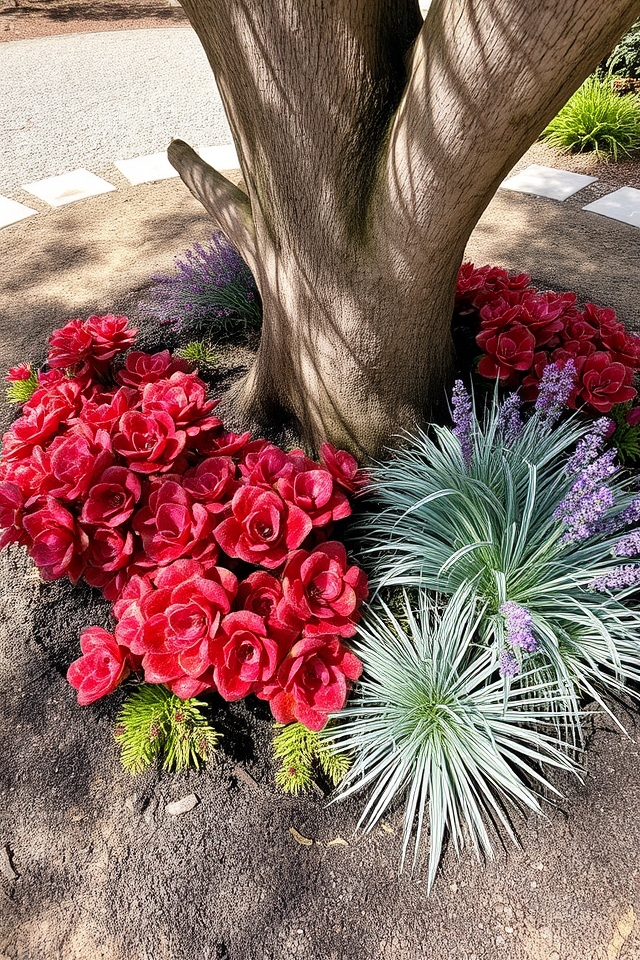
Drought-tolerant plant combinations around a tree include water-wise plants like sedum and sempervivum, decorative grasses such as carex or molinia, and fragrant herbs like lavender or rosemary. Space plants to reduce root competition, using fast-draining soil. Mulch to conserve moisture while allowing air flow. These selections thrive with little water, enhancing beauty and sustainability in dry conditions.
Your garden flourishes as a vibrant scene, weaving shade, blossoms, and joy. Like a tree’s roots, your space blends beauty and purpose—each swing, trellis, and fairy light a point in a network of peace. One sunflower, once a seed, now reaches for the sky, showing how your creativity grows where nature and imagination meet.
